Education in the Media
Home » Faculty of Education »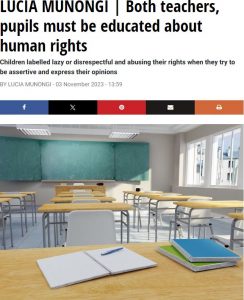
Both teachers, pupils must be educated about human rights.
This week marked the beginning of the 2023 matric final examinations, with more than 717,377 candidates sitting for the exams nationwide. Until next year, when the results are released, parents and caregivers will be holding their breath, hoping their children perform well.
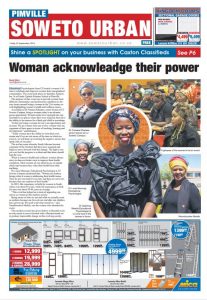
Woman acknowleadge their power
Educational Psychologists from UJ hosted a women’s forum to celebrate and empower women from marginalized communities. The event took place on Saturday, September 16 at Funda Ujabule Primary School in Pimville.
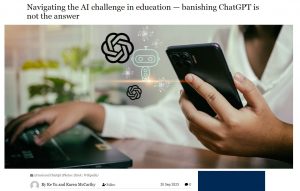
Navigating the AI challenge in education — banishing ChatGPT is not the answer
Deep suspicion of AI as a vehicle that can facilitate cheating in an educational setting has seen calls to banish the use of technology like ChatGPT in educational assessments. This approach will result in a disconnect between education and the real world it prepares students for. Instead, an integrative approach to teaching and assessment is possible.
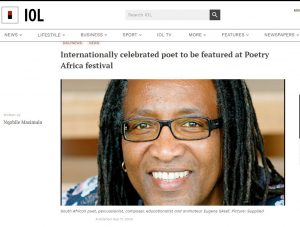
Internationally celebrated poet to be featured at Poetry Africa festival
This year’s Poetry Africa festival will feature renowned South African poet Eugene Skeef, who has lived in London for more than 40 years and is internationally celebrated for his exceptional work as an artist and his active role in conflict resolution.
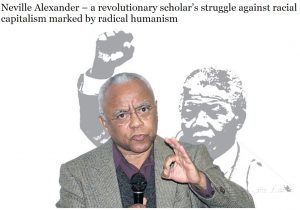
Neville Alexander, a revolutionary scholar’s struggle against racial capitalism marked by radical humanism
Eleven years ago this month, shortly after the Marikana Massacre, Neville Alexander, who seamlessly combined rigorous scholarship with activism, died at the age of 75. Alexander’s major intellectual contributions centered on the “national question”, language, education, and culture, as well as on his thoughts about and direct participation in organizational questions in the struggle against racial capitalism in South Africa.
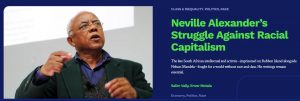
Neville Alexander’s Struggle Against Racial Capitalism
The late South African intellectual and activist—imprisoned on Robben Island alongside Nelson Mandela—fought for a world without race and class. His writings remain essential.
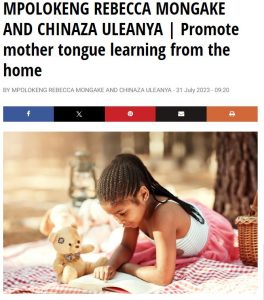
Promote mother tongue learning from the home
In SA, there have been clarion calls for children to be taught in their mother tongue at school. However, there seems to be muted voices expressing doubt about this that are often drowned out in the public discourse. Away from television screens and radio microphones, there are many parents who still prefer English as the language of teaching and learning.
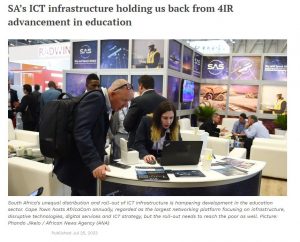
SA’s ICT infrastructure holding us back from 4IR advancement in education
The South African government, as well as some leading researchers and academics, have promoted the idea that the country is engulfed by the Fourth Industrial Revolution (4IR). This new type of industrialisation is described generally as the increased and evolved use of Information and Communications Technologies (ICTs) in the production of new and useful knowledge, and of relevant technological skills to match growing economies.
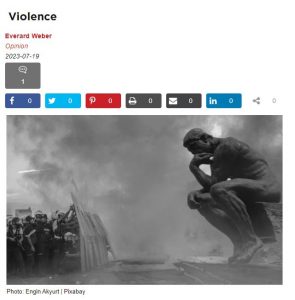
Violence
We gain a certain understanding of Victorian classrooms at home and abroad, during the colonial period and after. We also learned of the contemporary cultures of neoliberal kitchens in neoliberal cities, and by implication, of many universities, their purposes of higher education and coercive relations of governance and management.
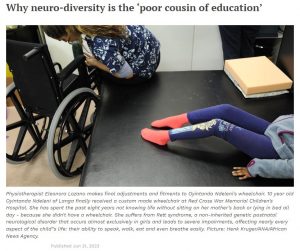
Why neuro-diversity is the ‘poor cousin of education’
Johannesburg – In April 2023, British award-winning singer Lewis Capaldi left his fans stunned when he suddenly started twitching and shaking while performing his hit, Someone You Loved. For a moment, it appeared as if he was suffering from spasms, and when it became clearer that he could not continue the vocals, his adoring fans started doing a rendition of the lyrics, singing the hit back to him instead.
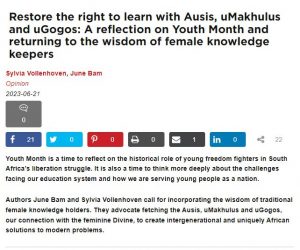
Restore the right to learn with Ausis, uMakhulus and uGogos: A reflection on Youth Month and returning to the wisdom of female knowledge keepers
Youth Month is a time to reflect on the historical role of young freedom fighters in South Africa’s liberation struggle. It is also a time to think more deeply about the challenges facing our education system and how we are serving young people as a nation.

Woolworths Pride and why the US war on LGBTQ rights should matter to all of us
he Woolworths campaign to celebrate Pride Month should not have been remarkable. It is, after all, simply a large corporate that determined that its profit-making agenda aligned, in this case, with advancing the visibility of an often-maligned group.
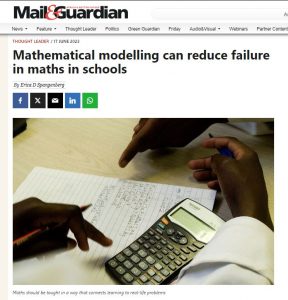
Mathematical modelling can reduce failure in maths in schools
Are South African learners set up for failure in maths? According to the latest International Mathematics and Science Study, conducted in 2019, which assessed general mathematical and scientific knowledge, particularly reasoning and problem-solving skills of learners worldwide, only 37% of grade 5 and 9 learners in South Africa acquired basic maths knowledge.
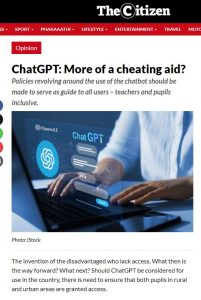
ChatGPT: More of a cheating aid?
The invention of the disadvantaged who lack access. What then is the way forward? What next? Should ChatGPT be considered for use in the country, there is need to ensure that both pupils in rural and urban areas are granted access.
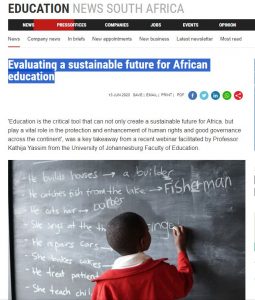
Evaluating a sustainable future for African education
‘Education is the critical tool that can not only create a sustainable future for Africa but also play a vital role in the protection and enhancement of human rights and good governance across the continent’, was a key takeaway from a recent webinar facilitated by Professor Kathija Yassim from the University of Johannesburg Faculty of Education.
Prof Elizbeth Henning speaks on reading habbits.
Prof June Bam-Hutchison & Prof Eugeen Skeef speak about the transformation of education in Africa – The reversal of colonialism.
Prof Kathija Yassim speaks about the effect of blackouts on education.
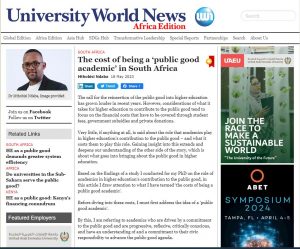
The cost of being a ‘public good academic’ in South Africa
The call for the reinsertion of the public good into higher education has grown louder in recent years. However, considerations of what it takes for higher education to contribute to the public good tend to focus on the financial costs that have to be covered through student fees, government subsidies and private donations.
Prof Henning speaks at the Progress in International Reading Literacy Study (PIRLS 2021)
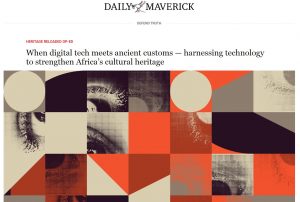
When digital tech meets ancient customs — harnessing technology to strengthen Africa’s cultural heritage
The use of technology in conserving African indigenous knowledge is relatively unexplored. Digital technologies can not only facilitate how we access local cultural knowledge but can also be a tool to enhance the propagation of these cultural practices to future generations.
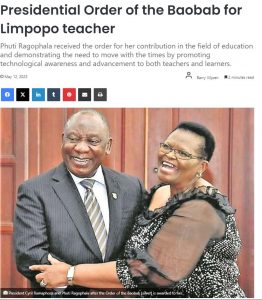
Presidential Order of the Baobab for Limpopo teacher
Phuti Ragophala received the order for her contribution in the field of education and demonstrating the need to move with the times by promoting technological awareness and advancement to both teachers and learners.

The 1973 Durban strikes and the workers movement to end apartheid
The author argues that the Durban strikes not only resulted in the development of union structures, better working conditions, and salary increases, they also became a significant force in the liberation movement.
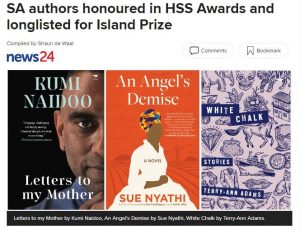
SA authors honoured in HSS Awards and longlisted for Island Prize
The National Institute for the Humanities and Social Sciences (NIHSS) recently made its awards for 2023. The institute honours “outstanding, innovative and creative contributions” to the human sciences. The eighth Humanities and Human Sciences (HSS) Awards were given out at a ceremony at the Javett Art Centre at the University of Pretoria.
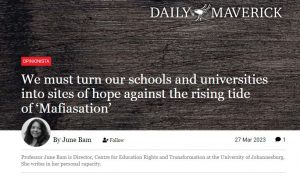
We must turn our schools and universities into sites of hope against the rising tide of ‘Mafiasation’
Over the last five years, South Africa has been widely characterised as an emerging ‘Mafia’ state, exacerbated by the global Covid pandemic which created voids and opportunities for criminal syndicates to thrive in collusion with corrupt politicians and civil servants.

Irish Disability Minister visits UJ Centre of Neurodiversity
The Irish Minister of State for Disabilities in the Department of Children, Disability, and Equality Integration, Anne Rabbitte, visited the University of Johannesburg Centre for Neurodiversity in Soweto on March 16, 2023, to experience the centre’s achievements and strengthen ties for good practises.
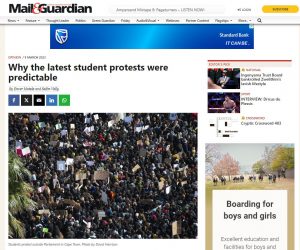
What can go wrong in the teaching of reading?
After the release of the Reading Panel’s 2023 report, we have again been reminded of the shocking state of reading competence in our schools. One Twitter headline “shouted out” that first-grade children don’t know the letters of the alphabet
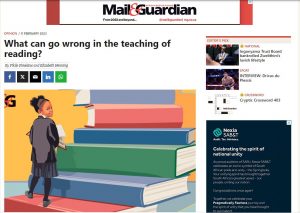
Why the latest student protests were predictable
Once more protests have erupted in our universities concerning the right to education. They arise from a range of issues which include registration fees, the restrictive admission policies affected by student debt, accommodation and housing, food and hunger, transport and other necessities in a learning environment.
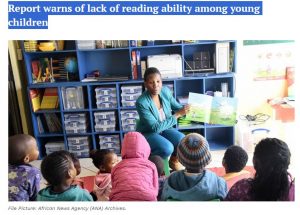
Report warns of lack of reading ability among young children
Durban – Academics in the education field have called on the government to provide sufficient support to foundation-phase teachers, cautioning that failure to do so could have a devastating effect on pupils. The warning comes after a report by the advocacy group 2030 Reading Panel revealed that a significant number of pupils in the foundation phase were unable to read for meaning by age 10.

Dreams, despondency and lost opportunities — the scramble for places at South African universities
Competition for university entrance is extremely tough—this year, the University of Johannesburg received 32,491 applications for the BEd Intermediate Phase qualification; 3,905 met the requirements for admission—but only 120 spaces are available.
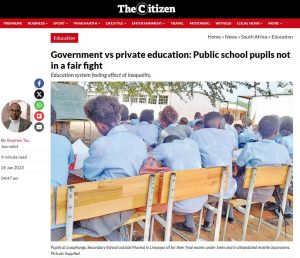
Government vs private education: Public school pupils not in a fair fight
The issue of social inequality remains a serious problem and one area where this is most glaring is within the education sector, where public school pupils appear to be getting a raw deal compared to their private school counterparts. As education expert Dr Suraiya Naicker explains, established private schools under the auspices of the Independent Examination Board (IEB) have the necessary resources and are able to offer more opportunities in terms of academic, sports, culture as well as support services such as psychological or career counseling, compared to government schools falling under the Department of Basic Education (DBE).

‘We can do better by our children,’ symposium on child wellbeing told
‘Frankly, we can do better by our children,” said Nadine Petersen, the vice-dean of teaching and learning at the University of Johannesburg’s (UJ’s) Faculty of Education. She said, during the Fast-Tracking Child Wellbeing symposium hosted by UJ on Wednesday, that she was tired of the preventable incidents that led to children’s arrested wellbeing.

For young people facing a jobless future, technology-enhanced learning could be a game-changer
Technologies such as augmented and virtual reality have the potential to change how students engage with topics in science, technology, engineering, and mathematics. South African schools, with higher education, should capitalize on how this medium can push the boundaries of learning into new dimensions.
